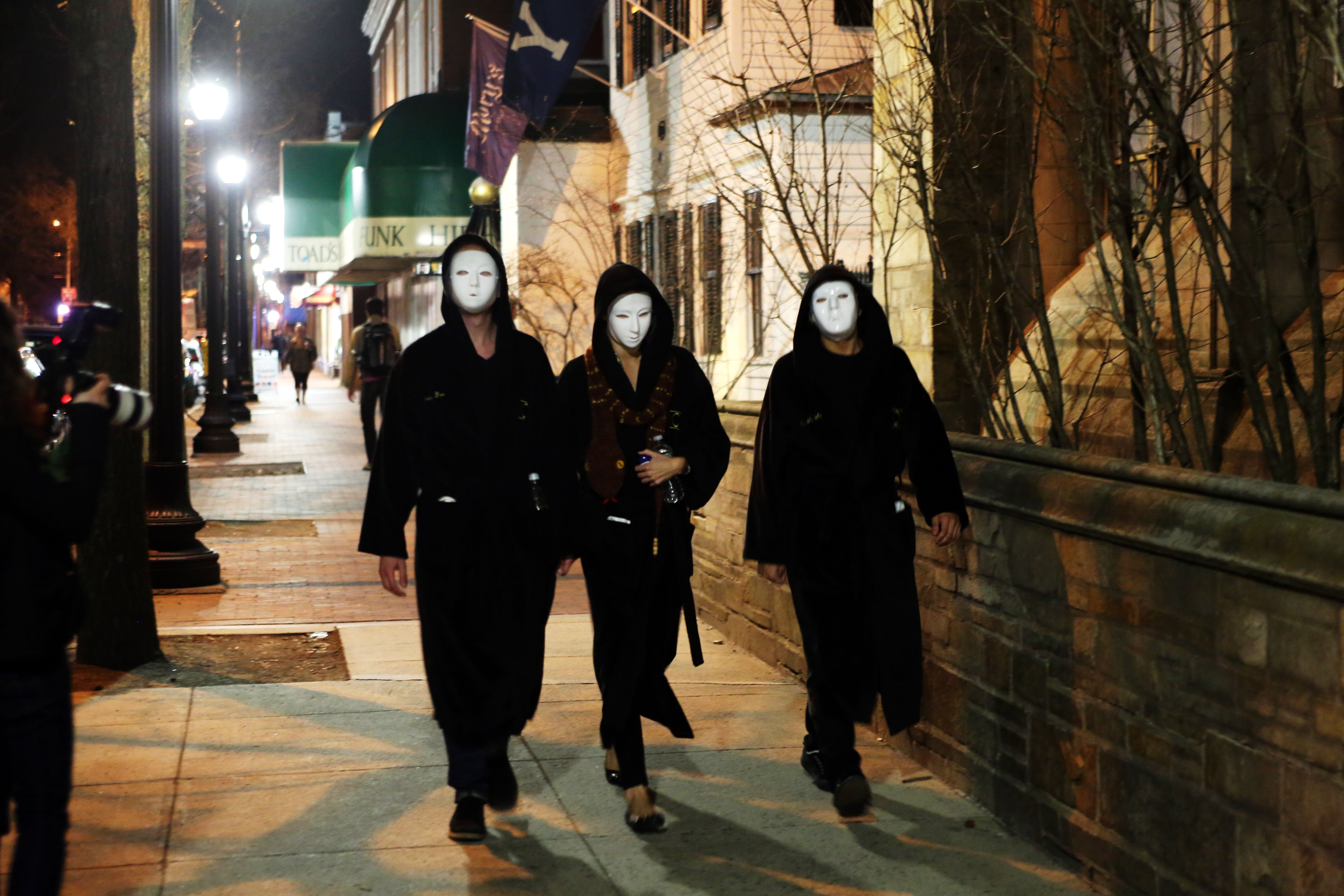
There are seven new senior societies on campus this fall, the result of an initiative begun last spring to make the society system more inclusive.
This past spring, former Yale College Council President Danny Avraham ’15 announced an initiative to create enough societies to accommodate all interested juniors. He made the proposal in response to sustained criticism of the existing tap process as hyper-exclusive, stressful and opaque. Since then, Avraham has successfully enlisted the support of alumni in funding and advising his initiative, although he declined to provide the names of these alumni or how much money they have contributed.
“People have been incredibly enthusiastic,” Avraham said. “It’s really been touching to hear some of the feedback, how excited people were and are, and to see how the different groups are meeting now and see how everything’s set up.”
In April, members of the class of 2016 received an email inviting them to sign up for a spot in a new society. This offer would guarantee that they could participate in the society experience, even if they were not tapped by an existing society. Interested students were also asked to fill out an online form indicating their preferences for a society, including time commitment and emphasis on society traditions like “bios” — long presentations about members’ personal histories — or debates. Students were then grouped according to these preferences.
Though the seven new societies are formally independent, they are all part of a larger collective called the Societies Initiative Network. These societies all receive funding from the initiative, much of which has come from alumni contributions. According to Avraham, most of that money has gone towards initiation for the societies’ new members and activities for the individual societies throughout the year.
Avraham said the new societies, which include roughly 100 students in total, varied in how much initial guidance they received from the initiative, noting that some were even unnamed when students joined. The societies also differ in how much attention they pay to traditions and how much time they devote to bios, for example, but for the most part they are similar to other non-landed societies at Yale.
A senior who serves as the liaison for their society to the larger initiative said their society is more bio-focused. The student, who asked to remain anonymous to protect the privacy of their society, added that they were glad the sign-up process allowed them to specify exactly what they were looking for in a senior society.
The student added that the experience is enhanced by the fact that everyone in the society had chosen the format for themselves, rather than joining one with an existing structure.
“Everyone definitely wants to be there,” the student said. “And since there are bio-focused and non-bio-focused ones, everyone in mine specifically wants to be [at that one].”
The seven societies have their own organizational structure, with a designated liaison in each responsible for communicating with the rest of the initiative. The anonymous student has been in touch with Avraham, as well as an alumni advisor, regularly for guidance.
One of the societies in the initiative is Ring and Candle, which is being revived after it went defunct more than 40 years ago. After Avraham’s announcement in the spring, a group of alumni contacted him to help re-establish the group.
“We were all delighted to help the tradition resume,” Nick von Baillou ’64, a Ring and Candle alum, said. “Having done so also means continuing to support it in whatever way we can — particularly in ensuring that … tradition is relevant and meaningful amongst the new classes of Ring and Candle members and [emphasizing] that it needs to be supported in the longer term.”
The Societies Initiative Network will conduct its own recruitment process this spring that will run alongside the traditional tap process. Avraham said an email will be sent to all juniors sometime in January or February inviting students to sign up.
Rather than tapping the next class of members, the outgoing members of the new societies will cooperate to place interested students into their societies according to their preferences, and new members will be initiated on the same night as new members of the rest of Yale’s societies.
“What we’re hoping to do here is basically create a process that puts the juniors in the center of it in terms of what they’re looking for, whereas the current process is really more predicated on what the seniors who are leaving the society want,” Avraham said.
Avraham added that existing societies will also be eligible to join the initiative and receive funding from it, provided that they do away with their traditional tap processes. He said he will reach out to other societies sometime in January, before the Society Assembly — a University-sanctioned panel of society representatives — convenes to set the dates for the tap process.
The initiative continues a trend of society tap reform that began this winter: in February, the Yale College Council announced that, for the first time, juniors would be allowed to opt out of the society tap process. By removing their names from consideration by any societies, juniors not interested in societies could avoid the discomfort and stress associated with the process.
Though some students have criticized Avraham’s program, arguing that societies formed under such a formal process will not last, it remains to be seen what will become of them.
“Our [society] has no intention of stopping or ending,” the anonymous society liaison said. “You feel a sense of ownership when you do kind of create it, initially. And especially knowing that everyone signed up for this makes everyone more committed to being together and coming every week.”







